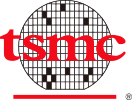Fire Protection Engineer, EHS

Website TSMC
We are seeking Fire Protection Engineers to join our growing team! Become part of a unique team of technology enthusiasts joined in a common purpose – to unleash innovations that lead to sustainable economic growth and a smarter, better world. Nowhere is that opportunity greater than in the semiconductor industry.
Summary:
The Fire/Life Safety Engineer is responsible for supporting Design and Construction as well as leading the Operations & Maintenance team to ensure that our Fire Alarm (FAS) and Fire Protection systems (FPS) as well as our Hazardous Gas Monitoring Systems (HGMS) are always available and meet code. You will work with both internal and external teams to define, design, detail and document the various FAS/FPS/HGMS that protect our facilities and employees. This will include development of testing and maintenance procedures to meet NFPA, AHJ and Insurance carrier expectations, in field QA to ensure the work completed by our employees and service providers meets expectations and coordination for future construction.
Responsibilities:
- Develops Maintenance and Operational procedures for the FPS/FAS/HGMS systems and devices to ensure that all work performed meets NFPA and AHJ codes.
- Works closely with technicians and service providers to address/correct deficiencies.
- Utilize the CMMS of record for planning/scheduling all work in close coordination with the Maintenance Supervisor.
- Develops training packages and plans for technicians, works with Supervisors on skill assessments and training plans.
- Evaluates insource vs. outsource opportunities to balance cost with quality.
- Maintains programming code for FAS and PLCs
- Provides guidance and support for new fab designs or ongoing retrofits to ensure the factory, office and support buildings remain within code.
- Work with third party design vendors to review concept designs and designs in progress to ensure they meet established design standards, local code requirements, and any other requirements of the AHJ.
- Develops strong working partnership with AHJ and Insurance company.
- Works closely with site EHS team as well as Risk Management team to proactively identify and resolve issues.
- Duties will include any, and all other directions of supervision that can safely be performed by the incumbent.
- Work is conducted inside and outside environments, covering our full site, and any safety activities
Knowledge and Personal skills:
The Fire/Life Safety Engineer must have knowledge of industry standards, codes and regulations, and the ability to apply to maintenance and operation of site FPS/FAS/HGMS systems.
- Experience or knowledge in local codes, strong knowledge of National Fire Protection Association (NFPA) standards, International Code Council (ICC) requirements, and other fire protection industry standards, procedures, and methodologies.
- Experience with processes of design review, specification, development of design standards, and submittal review.
- Ability to read and understand construction documents for all trades (design drawings, control diagrams, specifications, etc.)
- Knowledge in authoring white papers, technical documentation, training materials, Code Modification Requests (CMRs), and Alternate Materials and Methods (AMM) proposals.
- Knowledge of both mechanical and electrical systems commissioning.
- Effective verbal, presentation, and listening communications skills.
- Computer skills including the ability to utilize MS excel pivot tables
Experience, Education, and Training:
- Bachelor’s degree in a field related to fire protection or an equivalent engineering degree in a related field
- Interested in having experience in design engineering or the construction industry, related to all aspects of fire protection, including fire suppression systems, fire alarm and detection systems, fire-resistive construction, and life safety.
Physical Requirements:
The Fire/Life Safety Engineer may spend extended hours working inside and outside in all weather conditions, and in awkward body positions which can cause physical discomfort and strain. They must have the ability to safely climb ladders, and work at elevation from ladders, scaffolding, lifts, roofs, or platforms, and the ability to work in confined spaces.






The Quantum Threat: Why Industrial Control Systems Must Be Ready and How PQShield Is Leading the Defense